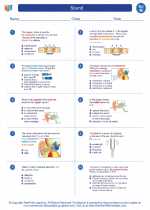Reproductive Glands
The reproductive system in humans is a complex system responsible for the production of gametes (sperm in males and eggs in females) and the secretion of sex hormones. The reproductive glands play a crucial role in this system, as they are responsible for the production of these gametes and hormones.
Male Reproductive Glands
Testes: The testes are the male reproductive glands responsible for the production of sperm and the hormone testosterone. Sperm production occurs within the seminiferous tubules of the testes, while testosterone is produced in the Leydig cells.
Epididymis: The epididymis is a coiled tube located on the posterior surface of each testis. It serves as a site for the storage and maturation of sperm before they are ejaculated.
Vas Deferens: The vas deferens is a muscular tube that transports mature sperm from the epididymis to the ejaculatory duct during ejaculation.
Female Reproductive Glands
Ovaries: The ovaries are the female reproductive glands responsible for the production of eggs (oocytes) and the hormones estrogen and progesterone. Ovulation, the release of a mature egg from the ovary, occurs in a regular menstrual cycle.
Fallopian Tubes: Also known as the uterine tubes, the fallopian tubes are the site where fertilization usually occurs. They transport the egg from the ovary to the uterus and provide a site for sperm and egg to meet.
Uterus: The uterus, or womb, is a hollow, muscular organ where a fertilized egg can implant and develop into a fetus during pregnancy. If fertilization does not occur, the lining of the uterus is shed during menstruation.
Vagina: The vagina is a muscular tube that connects the uterus to the outside of the body. It serves as the birth canal during childbirth and also allows for the passage of menstrual fluids and sperm.
Study Guide
To study the reproductive glands, it's important to understand their structure, function, and the processes they are involved in. Here are some key points to focus on:
- Identify the major reproductive glands in males and females and their respective functions.
- Understand the process of gamete production in the testes and ovaries.
- Explain the role of sex hormones produced by the reproductive glands in male and female physiology.
- Describe the pathways for the transport of gametes in the male and female reproductive systems.
- Discuss the processes of ovulation and menstruation in females and their relationship to the reproductive glands.
By understanding the structure and function of the reproductive glands, you can gain a comprehensive understanding of the human reproductive system and its importance in the continuity of life.
.







